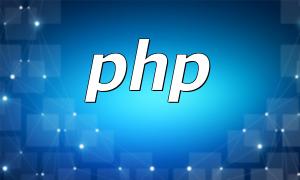As a popular server-side scripting language, PHP has robust network communication capabilities. It supports multiple protocols, enabling efficient data exchange between different systems and services. This wide protocol support allows PHP to play a vital role in web development, data transfer, and messaging systems.
HTTP is the foundation of web communication, handling data transfer between clients and servers. PHP can easily process HTTP requests and responses, making it ideal for building dynamic websites and RESTful APIs.
FTP is used to transfer files between servers. With PHP’s FTP extension, developers can upload, download, rename, and delete files, making it useful for file management systems and automated deployment tasks.
SMTP is the standard protocol for sending emails. PHP supports SMTP through built-in functions or third-party libraries such as PHPMailer, allowing developers to send text or HTML emails for applications like notifications or account verification.
POP3 and IMAP are used to retrieve emails. PHP can connect to mail servers using these protocols to read, filter, and process incoming messages, enabling the development of webmail or email alert systems.
DNS resolves domain names into IP addresses, serving as the backbone of Internet access. PHP provides functions for domain lookups, IP resolution, and reverse lookups, making it useful for obtaining server or domain information.
LDAP is used to access data stored on directory servers, such as user accounts and permission settings. PHP can connect to LDAP servers to perform queries, authentication, and data updates—commonly used in enterprise authentication systems.
Beyond the standard protocols, PHP also supports modern communication and messaging protocols, including:
PHP’s native support for a wide range of protocols empowers developers to integrate seamlessly with different systems and build efficient network applications. From web development and file transfer to email processing and message queues, PHP demonstrates exceptional flexibility and compatibility.








